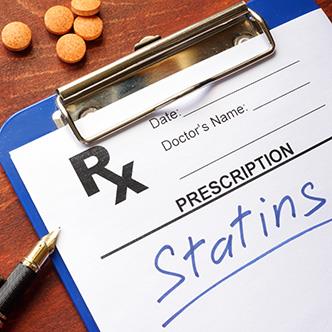
Many people take statins to lower their cholesterol levels to either prevent having a heart attack or a stroke for the first time, or to lower their chances
of having a second one. People with heart disease have a higher risk of complications from the new coronavirus, and people may be wondering whether taking a statin affects their risk during the coronavirus disease 2019 (COVID-19) outbreak.
The article “Is There a Role For Statin Therapy in Acute Viral Infections?”
by Salim S. Virani, MD, FACC, surveys what’s known so far (Cardiology Magazine online, March 18).
The main message for patients and their loved ones: If you are taking a statin for an underlying heart condition or to lower your chance of developing heart disease, continue to do so unless directed otherwise by your health care professional. In general,
stopping or even skipping a dose of medicine can cause problems with your care.
COVID-19 is an illness that can affect your lungs and other parts of the respiratory system. The main symptoms are fever, cough, and shortness of breath.
It makes sense for people who have atherosclerotic cardiovascular disease (ASCVD), diabetes, or who are at high risk of ASCVD, to keep taking statins if prescribed, Virani writes. ASCVD develops because of a buildup of cholesterol, fat and other substances
in the blood. Over time, this buildup (called plaque) can harden and narrow the arteries, and can cause a heart attack or stroke. Deaths from COVID-19 are higher for people who also had cardiovascular disease (10.5%) or diabetes (7.3%) when compared with the average population. It also makes sense to continue the medication if you think you have the new coronavirus because heart injury has been seen in patients with COVID-19.
It is possible
that statins could help patients with viral respiratory illness, such as COVID-19. But the evidence so far is limited and mixed, according to the article. Further, these studies involved flu or bacterial pneumonia, not the new coronavirus. It’s
important to note that statin therapy was not associated with harm in patients with viral respiratory illness. But more research is needed to understand the role statins may play in this type of disease.
Virani stresses that patients
at high risk for ASCVD should be taking statins as recommended by clinical guidelines. That may help lessen the chance of cardiovascular events associated with COVID-19 if the patient does come down with an infection.
If you don’t
know your risk for heart disease, it might be a good time to learn what increases your risk. On your next routine visit,
ask your health care professional about your 10-year risk score. It’s important to have ongoing discussions with your care team about your risk for heart disease, heart attack, or stroke because it changes over time as you age.